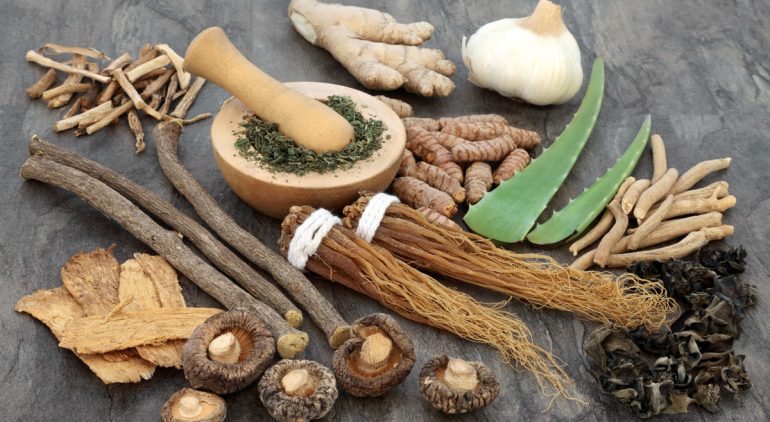
Wellness Wonders: Adaptogens
There is no doubt that this past year has paid a stressful toll. We’ve been put through the wringer of school and childcare closings, furloughs, lost jobs, worries about our own health and safety, worries about the health and safety of our loved ones, and a disconnection from our normal social supports. These stressful life events cause physiological stress responses in our bodies, making it an especially crucial time to double down on self-care. This is why we’re choosing to shine a Wellness Wonders spotlight on adaptogens!
What is an adaptogen?
According to our friends at Moutain Rose Herbs, Adaptogens are invaluable allies for coping with the normal day-to-day aggravations of life: work pressures, family responsibilities, financial worries, seasonal mood slumps, over-reliance on caffeine, and so on. When our nervous system is in overdrive, our bodies may experience aches and pains, melancholy, heightened anxiety, sleeplessness, difficulty with focus, suppressed immune response, and other similar stress responses. Adaptogens are a category of herbs and mushrooms that can help us find relaxation and calm to enjoy normal and healthful cycles of activity and rest.
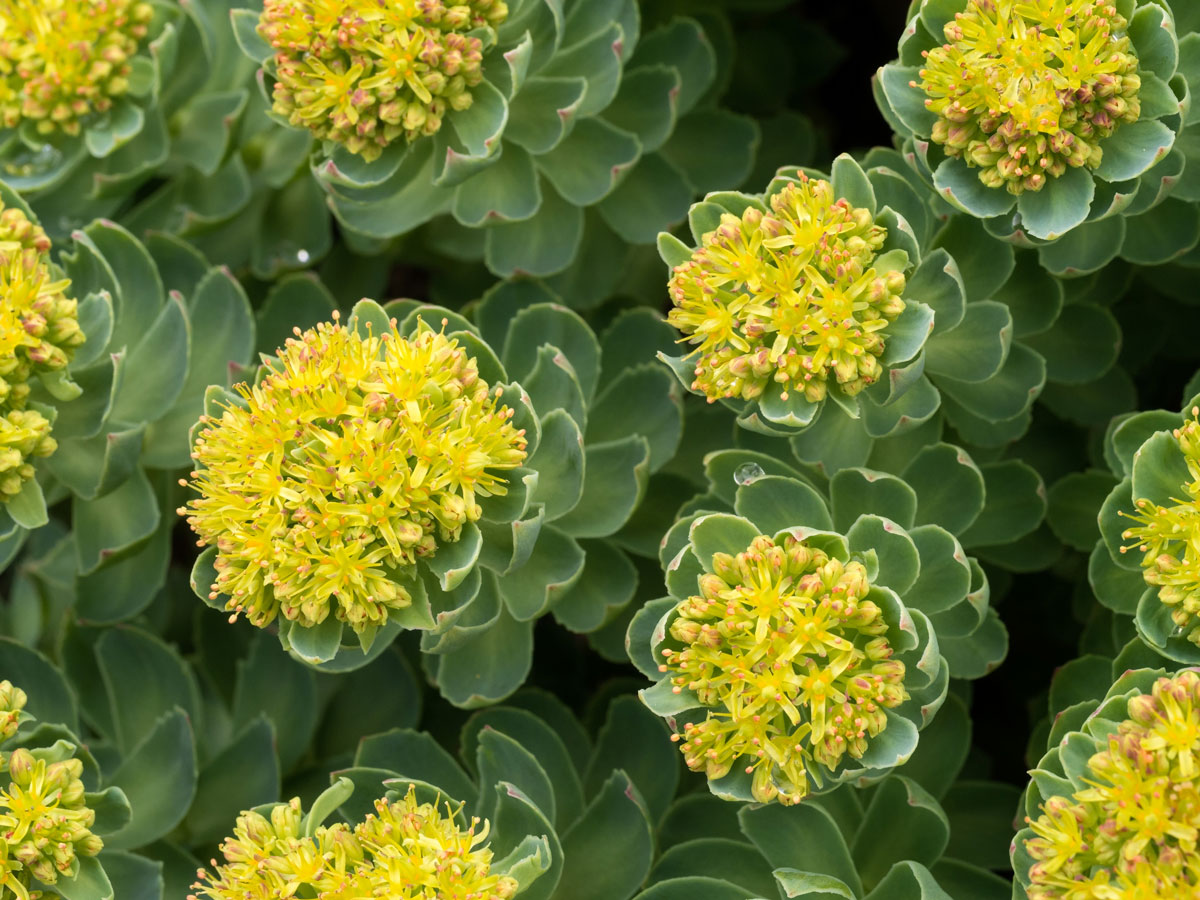
Although this classification is a bit loosely defined, there are a few generally recognized qualities that characterize specific herbs and mushrooms as adaptogens. They can help restore overall balance and strengthen the functioning of the body as a whole without impacting the balance of any individual organ or bodily system. Adaptogens facilitate these changes through a wide range of actions and plant energetics, rather than through one specific action. Adaptogens may help improve focus, support normal immune system functioning, or exercise some other broad-spectrum normalizing influence on unbalanced physiological processes.
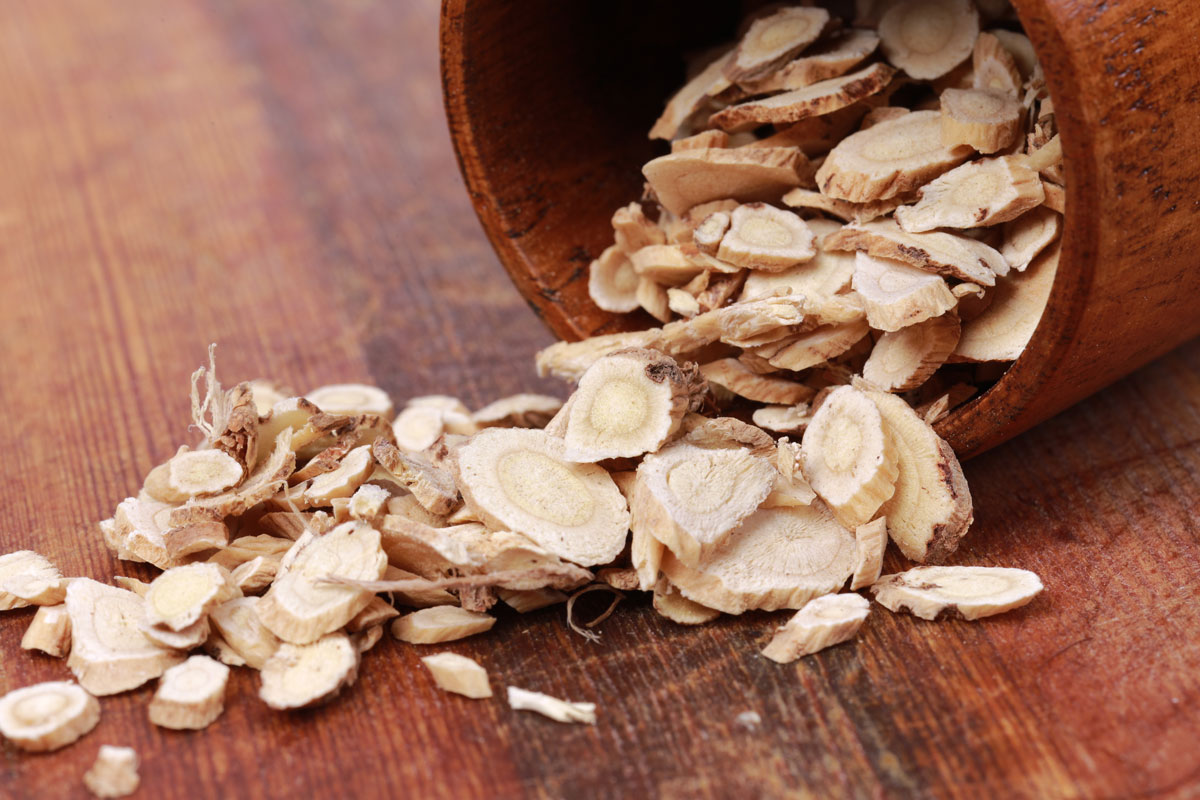
By definition, the active properties of an adaptogen must be safe, non-toxic, and non-habit-forming, even when taken over a long period of time. When taken daily as a tea or extract, these herbs can help improve mental functioning and allow our bodies to adapt more easily to stressful situations by curtailing an overactive adrenal response. However, adaptogens should not be used to push us beyond our limits and cannot replace the benefits of good, restful sleep and proper nutrition. These plant allies better support our wellness when taken to address a specific need or when used as gentle long-term tonics.
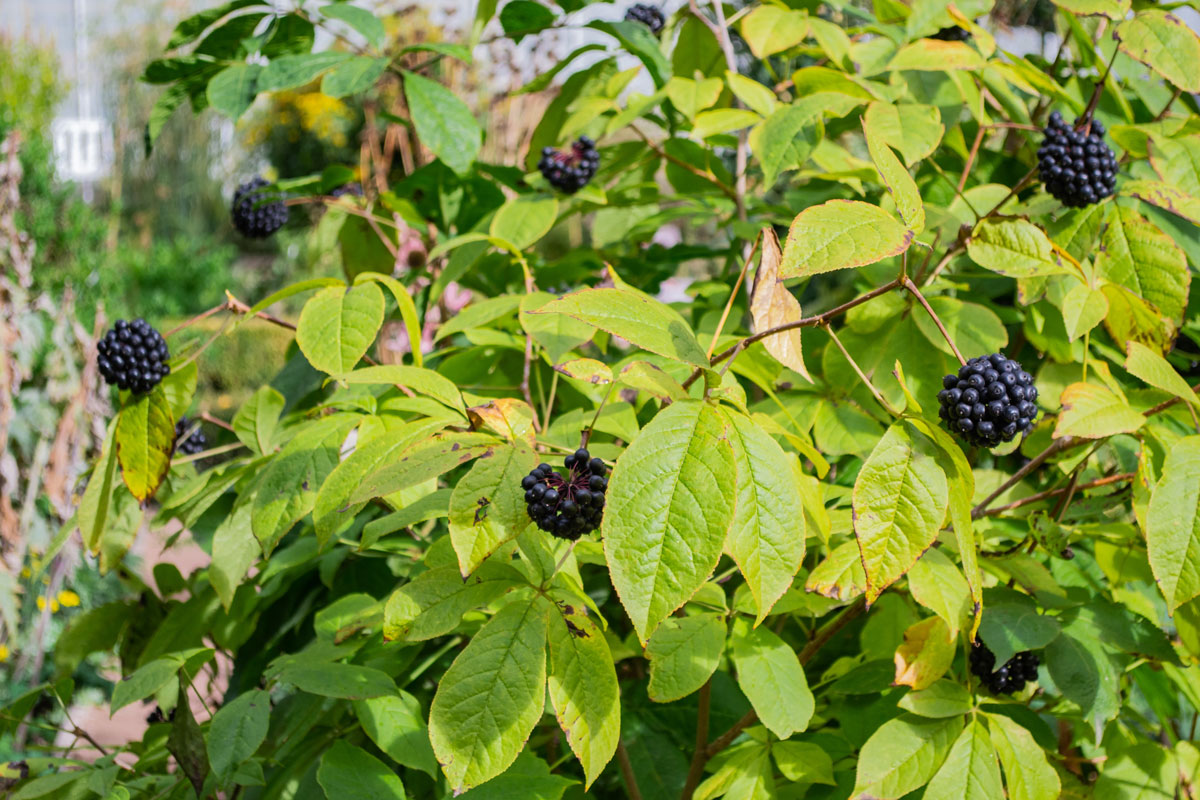
What kinds of adaptogens are available in our Wellness Department?
Your Co-op carries a wide variety of adaptogenic herbs and mushrooms reputably sourced from Vermont and beyond. Here is some information on four of the most popular adaptogens available at the Co-op:
- Ashwagandha – Withania somnifera is a perennial shrub in the nightshade family. It has been used for thousands of years throughout Asia and still holds an important place in herbal formulations today. In Ayurveda, ashwagandha root is highly valued as an adaptogenic tonic to help cope with stress and support overall cognitive health. Ayurveda practitioners believe that it is a helpful sleep aid and is often used to balance various conditions that arise from ‘vata dosha’ imbalances. It is believed to encourage youth and vitality. It is considered a grounding and nourishing herb and supportive to female well-being. Bitter, sweet, astringent in flavor and energetically warming (mildly, this well-loved root can be decocted, integrated into herbal tea blends, and tinctured.
- Astragalus – Astragalus membranaceus is a sun-loving perennial in the Fabaceae family native to China, Mongolia, and North Korea. Astragalus root was historically used in Traditional Chinese Medicine as a Qi tonic and was often found in classical herbal formulas dating all the way back to the first century AD. Astragalus is reported to support immune health and is used in Traditional Chinese Medicine to help increase energy and resistance to stress. The dried root can be tinctured, decocted as astragalus tea, and simmered into soups, stews, and broths.
- Eleuthero – Eleutherococcus senticosus, also known as Siberian Ginseng, has been part of the herbal repertoire in Chinese medicine for thousands of years due to its purported ability to support mental clarity and emotional stamina during stressful situations, boost physical endurance, help with sleeplessness, and (according to Ayurvedic medicine) support healthy immune system functioning. Eleuthero root is often prepared as a tea or extract.
- Rhodiola– Known for its ability to support healthy stress response and optimal adrenal functioning, Rhodiola rosea is one of 90 rhodiola species utilized for thousands of years throughout Europe and Asia. In fact, rhodiola’s medicinal use dates back to the time of the Greek physician, Dioscorides, who documented its use in 77 C.E. Rhodiola was employed in Russia to boost the stamina of Olympic athletes and was even taken by cosmonauts to support physical and mental performance. The floral-scented, purple-hued root is typically steeped into a tea, blended into herbal infusions, and tinctured.
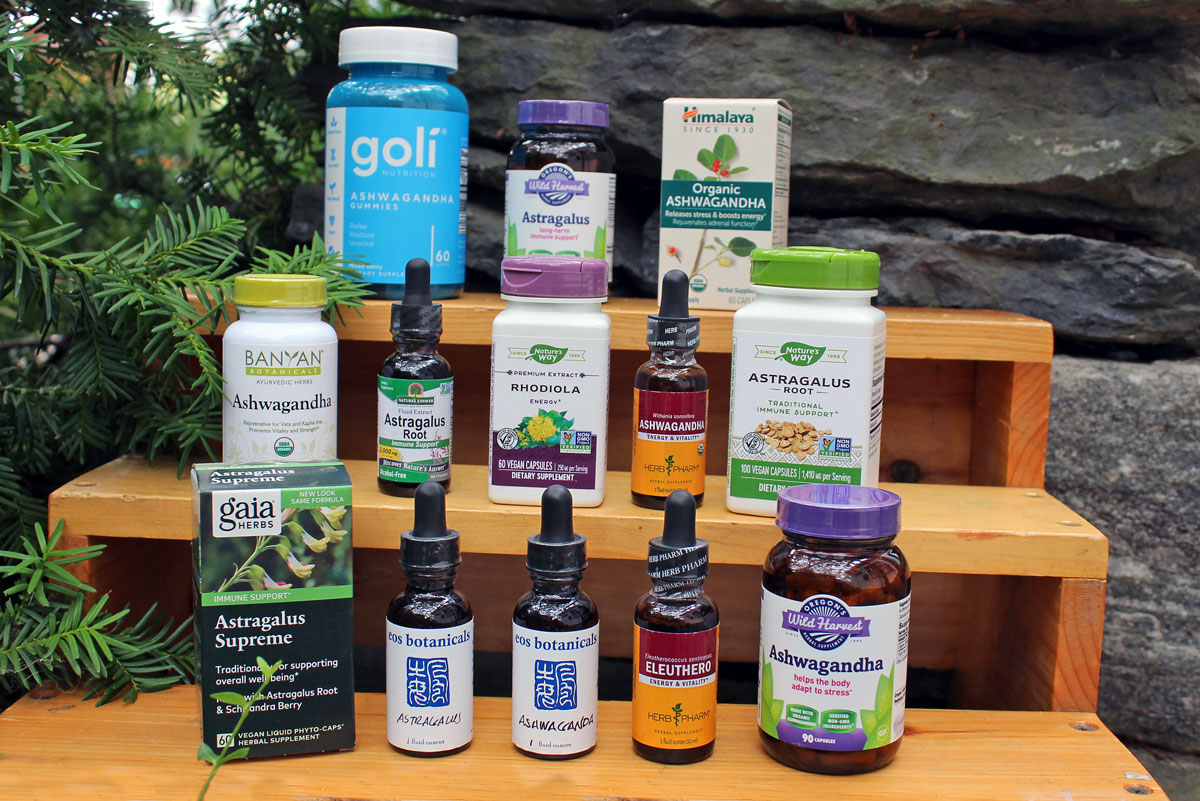
Which adaptogens are right for you?
Choosing the adaptogen that works best for you in the right form and dose requires a bit of trial and error, as the needs of our bodies and the way that stress manifests itself within each of us are as unique as our fingerprints. It’s best to first consult with your physician about incorporating adaptogens into your routine and our Wellness team is always on hand to help you along the way!



